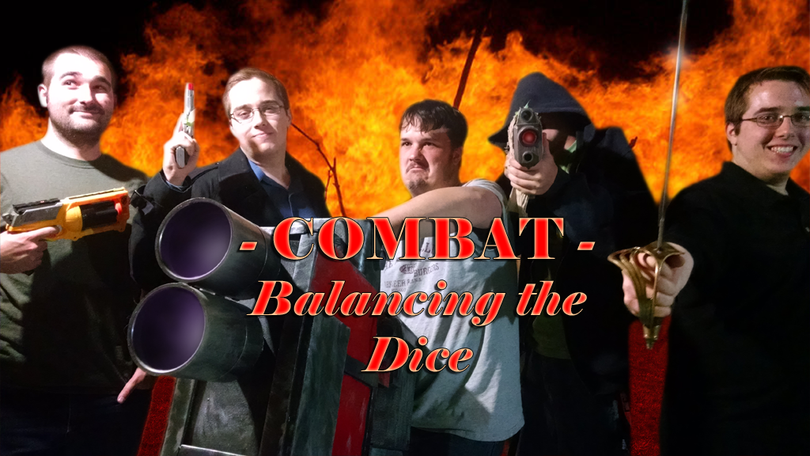Combat - Balancing the Dice

As a disclaimer, I know a lot of people probably are going to disagree with what’s in this blog post. Keep an open mind. In addition, this blog post is aimed primarily at DMs. Also note, I ramble a bit in this one.
These past couple weeks I’ve been talking about combat and some various house rules that I use to “improve” combat. On the other hand, this week I’m talking less about a rule and more of an idea. It’s the idea that the dice aren’t always helpful. Sometimes what you thought would be hard has become super easy or vice versa. As a DM you can fudge your rolls or tweak some stats to attempt to bring balance back to the game during game play.

Right off the bat, what I mean by “fudging your rolls” is claiming that what you rolled is different from what you actually rolled. As dice control most of combat and non-roleplaying interaction, a bad set of dice rolls can drastically change a set piece. It happens all the time, trust me. Players or DM’s succeeding or failing rolls consistently unbalances the universe.
By no means am I suggesting DM’s should claim critical hits on every roll of the dice and slaughter the party. A DM who does that will quickly find themselves without a party to game with. On the other end, I don’t suggest going too easy on the group or the game could get boring. Use dice fudging to balance the “randomness” of the dice.
All a DM needs is some way of hiding his rolls. A book, binder or preferably a DM screen. These screens also have tons of useful information specific to the game -- they’re nice. My dad’s gaming group had some basic rules for players: no Monster Manuals, you must explain and show all dice rolls and don’t try to sneak a peek behind the DM screen. It’s a matter of respect.
Dice fudging isn’t a DM’s only tool to offset the chaos and panic that stubborn dice can bring about. You can always change things up slightly or drastically if so inclined. Should an encounter be too easy for the player characters, make it harder. Add more enemies, have a mysterious shield envelope the enemies making them harder to hit, or if the battle is inconsequential have the enemies run away and plan an ambush later on.

On the other hand, if the battle is too hard (this happens more often than you’d think), it will require a bit more work to make it survivable. I try not to shy away from player death. It’s sad, but adds a bit of intensity and weight to the game. Still, if the battle is obviously one-sided I try to look for a way to either discontinue the fight or adjust the enemies' stats to make it easier. Perhaps the enemies will think the players are dead and leave, or have another character lure them away and (hopefully) escape. We had to do that when a group of Darkspawn attacked at night. It was almost a TPK (Total Party Kill), but some quick thinking saved all but one of us. Due to her valiant end, we gave her a permanent place upon the Wall of the Dead.
Last but not least don’t rely on the dice to get the players through a game. Rule of thumb, if the players can fail; they likely will. When asking my players to roll dice to spot/find something, whoever rolled the highest generally succeeds. If they happened to roll poorly, then I explain it took him a bit to find it. Or he stumbled across it by accident. That depends upon the roll and context. This comes up a lot when the players are listening for rumors of a quest to perform or trying to find a place to sell their loot.
On top of that, if there is no really penalty for failure (e.g. death/injury) don’t make the players roll. The characters, for example will spend enough time in the town to find the inn (if there is one). Unless it’s a major plot point failing to find it, I don’t make them roll. You’ll speed things along and get to the point.
If you have stories of dice behaving badly, please leave a comment below or on my facebook page! See you for the next blog. In the meantime, have fun adventuring!
“The dice hate me…” - Every gamer ever